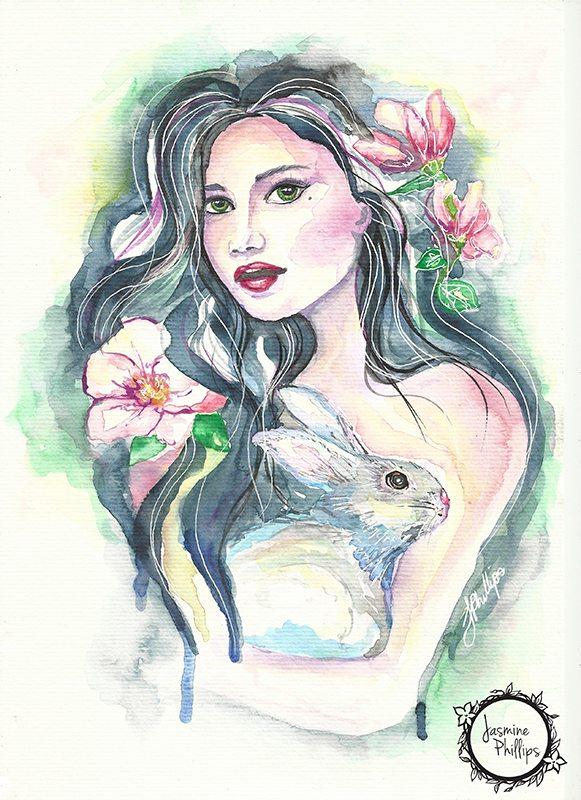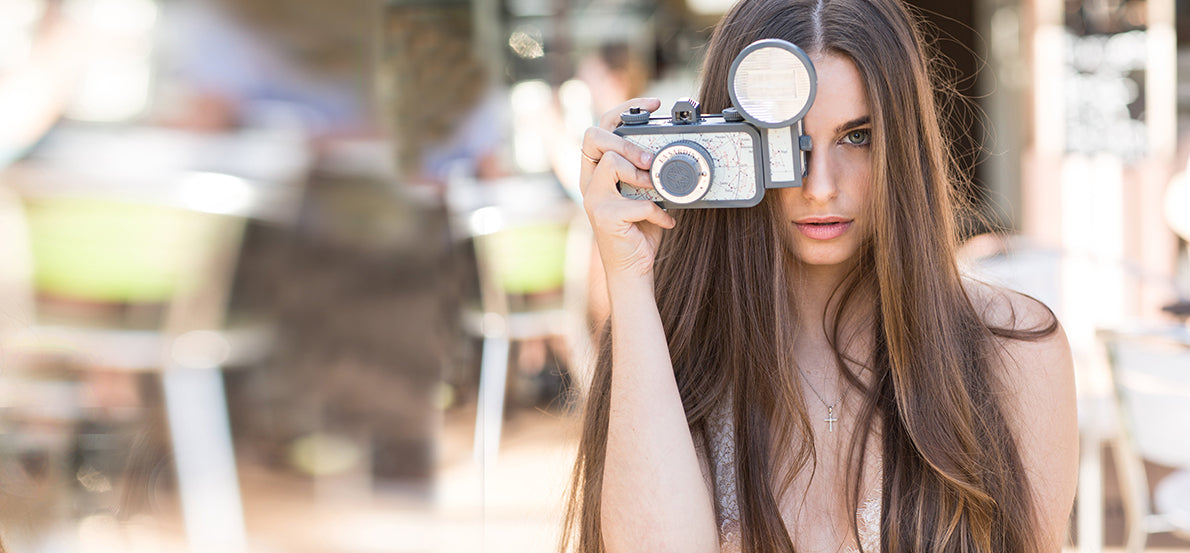
YOU DON’T NEED TO HURT A BUNNY TO BE BEAUTIFUL
PHOTO CREDIT: Original painting “Serena” by Gold Coast artist Jasmine Phillips www.facebook.com/jasminephillipsdesign.
Despite growing levels of awareness, the beauty industry is still very much dominated by major corporations who support the use of animal-derived ingredients and animal testing.
Choosing vegan beauty care, means sourcing products that are free from animal derived ingredients.
Familiarising yourself with common animalderived ingredients is one way to keep your cosmetics conscious.
Some commonly used ingredients in hair/body care products that can be animal-derived are:
Beeswax: Extracted from the honeycombs of honey bees, this is found in lip products, creams, lotions, mascaras, and hair styling products.
Caprylic acid: A liquid fatty acid that may be sourced from cow’s or goat’s milk, often found in perfumes and soaps.
Carmine/cochineal/carminic acid: Red pigment from the crushed female cochineal insect, commonly used in cosmetics and shampoos.
Casein/caseinate/sodium caseinate: A milk protein. Used in many cosmetics, hair preparations, and beauty masks.
Honey: Honey comes from bees, and is an animal derived product commonly used in skin and haircare.
Hydrolysed animal protein: A protein derived from animals. Used in cosmetics, especially shampoo and hair treatments.
Keratin: A family of proteins typically derived from ground-up horns, hooves, feathers, quills, and hair of various animals. In hair rinses, shampoos, permanent wave solutions.
Lanolin: This emollient is mostly extracted from the oil glands of sheep and found most commonly in lip products including lipstick, chapstick, balms, glosses and even nipple cream. It is also used widely in hair products.
Shellac: Resinous excretion of certain insects. Used as a candy glaze, in hair lacquer, and on jewelry.
Silk/silk powder: Silk is the shiny fibre made by silkworms to form their cocoons and is commonly used in both hair and skin care. Hatching the cocoons destroys the silk thread. Typically silk is extracting by placing the cocoon in boiling water or blasting it with steam. Both processes kill the pupae.
How do you know if a beauty brand is cruelty free?
Even if you’re not vegan, most people have a strong reaction when they see imagery of the cruelty inflicted upon animals whose sole existence is to ‘test’ products for human consumption.
There are a number of great online forums where you can ask questions about certain products when you’re unsure if what you’re using is animal-friendly.
There are also a number of organisations passionate about promoting awareness of animal cruelty that you can connect with including:
- Truly Cruelty Free, which is a crowd-funded Australian organisation championing compassion with the creation of a database that includes brands that are vegan and don’t test on animals.
- Choose Cruelty Free, which is an independent, non-profit Australian organisation which produces the Choose Cruelty Free List and campaigns for an end to animal testing.
We now also have access to brands doing their best to create more conscious beauty options for consumers, like vegan our haircare range Hot Tresses, which has been tested on yogis not animals.
Hot Tresses is packed with organic ingredients including vegan proteins such as quinoa and hemp, along with plant-based castor seed, coconut and ylang ylang oils. Other botanical extracts from lavender, rosemary, sage add to our hair elixirs.
This blog also appears on our lovely stockist Flannerys’ blog: http://flannerys.com.au/blog/.


Interesting perspective on how {gaming activity} connects with {technology or hardware}. The explanation about {technical aspect} really helps in understanding its impact on the overall gaming experience. A solid read for both gamers and tech enthusiasts. Regard : PasteLkun
Hi, I check your new stuff like every week. Your writing style is awesome, keep up the good work!